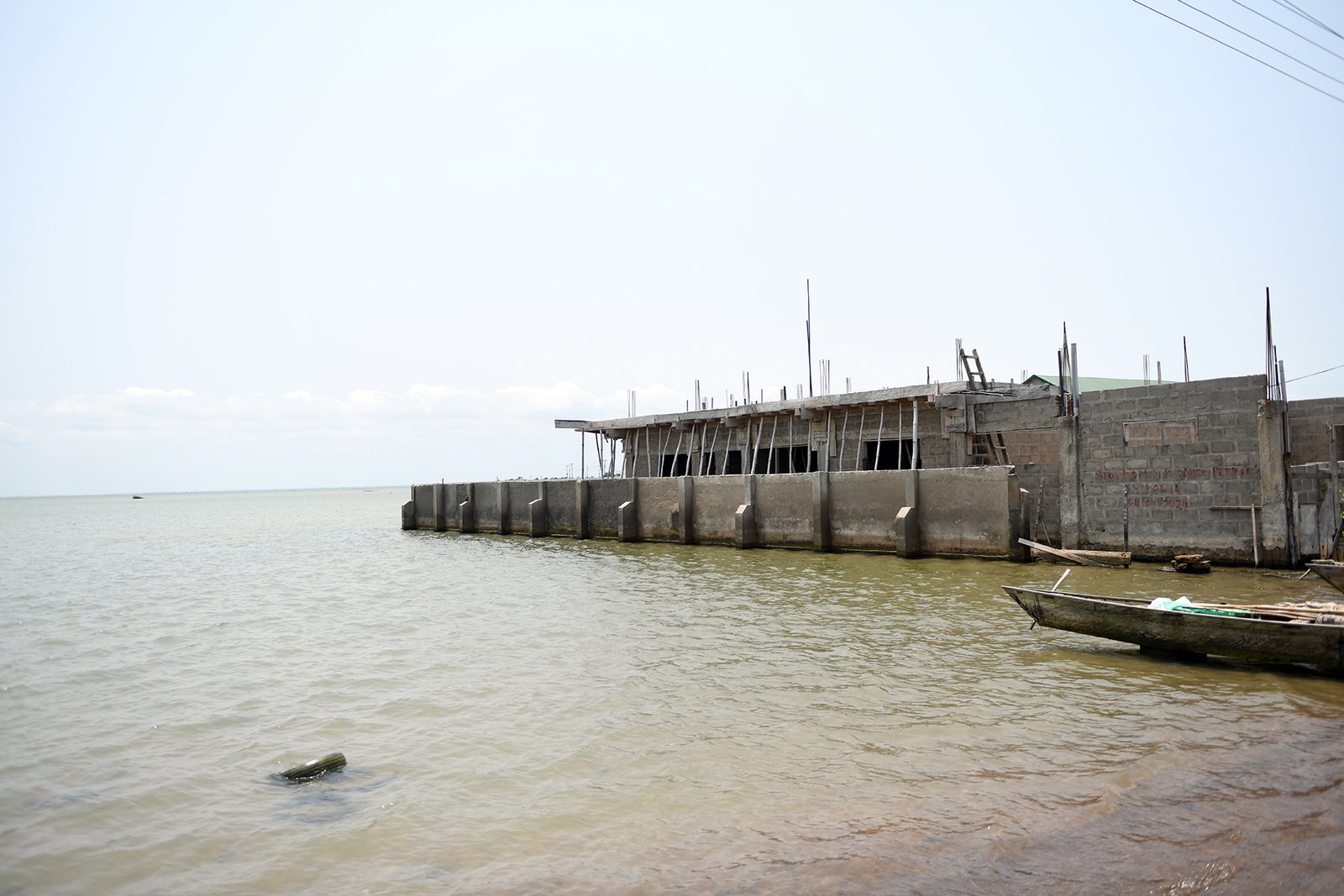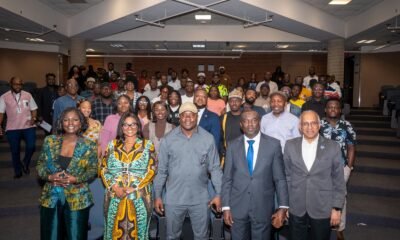News
2-day conflict resolution workshop ends in Wa

Speaker addressing participants
The Director in charge of Capacity Development and Outreach at the National Peace Council, Mrs Janet Sarney-Kuma has assured that the council is working hard to prevent violence before, during and after the 2024 general election.
She, therefore, called on stakeholders to work together to have a peaceful election and a peaceful transition devoid of violence, destruction of property or loss of innocent lives.
Mrs Sarney-Kuma gave the assurance in an exclusive interview on the sidelines of a two-day training programme at Dorimon in the Wa West District for traditional and religious leaders on conflict resolution, negotiation and confidence building for effective conflict management at the community level.
The three-year project sponsored by the United Nations Development Programme (UNDP) under its Atlantic Corridor Project is being implemented across three conflict prone regions namely; North-East, Upper East and Upper West regions.
The Director in charge of Capacity Development and Outreach noted that the Peace Council was doing a lot including quarterly meetings with the political parties in Accra which they hope to extend to the regions.
Mr Emmanuel Danyomah, the Executive Secretary of the Upper West Regional Peace Council, urged religious and traditional leaders to understand the dynamics of conflict before initiating action to resolve them.
“Understanding the need, rationale, cultural dynamics of a conflict among others will enable you analyse the conflict properly and take the appropriate actions to resolve it”, he said.
He also pleaded with them to always shelve their emotions and deal with the truth, adding that it was only when they detach their emotions from the conflict that they could act appropriately in resolving the conflict.
Rev. Fr. Dr. Moses Banungwiiri, the Archdeacon of the Anglican Church in Wa and the Chairman of the Upper West Regional Peace Council admonished chiefs and religious leaders to endeavour to speak the truth to help maintain peace in their communities.
Naa Bawa Seidu Seidu, the Chief of Duasi lauded the Peace Council for the programme, saying the knowledge shared would help them in resolving conflicts when they come up.
According to him, many conflicts would not have existed today if they were properly handled by the mediators.
From Rafia Abdul Razak, Wa
News
Swallowed by the Sea! …Keta’s coastal lines, landmarks, efforts to preserve heritage

The Atlantic Ocean is no longer a distant blue horizon for the people of Keta.
It now circles around their doorsteps, uninvited, unrelenting, pulling down walls and other structures, erasing memories, and threatening lives.
Hovering precariously between the restless sea and the Keta Lagoon, this once-thriving coastal town is slowly being obliterated.




Salt water has become both a physical and metaphorical threat, dissolving the town’s past as fast as it claims its future.
Madam Aku Atitso, 62, lives in a crumbling former Prisons Service quarters – one of the few structures still standing on the eroded stretch of Queen Street.


She sits quietly at the entrance, preparing a modest breakfast for herself and her granddaughter.
The air is thick with salt and silence. “The sea took everything,” she says softly. “My husband’s nets, our mattress, our memories all gone overnight.” Her voice trembles. “This place too is dying. But it’s the last place with a roof over my head.”
A few metres away, Aunty Esinam, 79, watches the sea from a low stool beside a wooden shelter. Her eyes do not blink. “That spot,” she points, “used to be someone’s living room, a whole family lived there”.

It’s not just homes that are vanishing. Landmarks that anchored Keta’s cultural identity are disappearing one after another. The once-imposing Fort Prinzenstein, a haunting relic of the transatlantic slave trade is now more of a ruin than a monument.

the encroaching waters along Keta’s
coast.
encroaching waters along Keta’s coast
The colonial-era Bremen factory, the old cinema where generations of children once laughed at flickering black-and-white films is also gone.
Queen Street, once the town’s bustling backbone, is now a watery corridor choked with debris.
Standing atop a section of the sea defence wall, 69-year-old retired teacher Efo Kwasi Agbeko surveys what remains.
“The first police station is mostly gone,” he says, gesturing part of the building stuck in the sea sand, only ruins and a few rooms remain.

“This town is fighting, but the sea is winning,” he said.
Even the Cape St. Paul Lighthouse, Keta’s historic sentinel, leans perilously toward the water, and fishermen say holes in the shore are opening more frequently, sometimes every week.
That leaves a thick cloud of uncertainty hanging around the historic town of Keta.
Once upon a time, it was a vibrant town noted for business but currently left with ruins with a few of the residents watching in awe the sea’s devastation.
From: Geoffrey Kwame Buta, Keta, Volta Region
News
Ghanaians climax Easter with fun-filled activities

Christians around the world and other faith based groups last Monday climaxed the Easter celebration with a number of fun-filled outdoor and indoor activities.
With streets empty, fun seekers stormed church premises where picnics were held while others partied in many ways.
Others spent the day at the various beaches and music and film shows occupying the others.

velleyball competition

at the Laboma Beach
Church in Tema Community 8 engaged
in a number of activities including the
popular draught competition
At the churches, participants engaged in bible reading, football, volleyball, playing cards, table tennis, horse racing, bouncing castles, swimming and oware.



one of the picnic venues
Others played ludo, tag of war, lime and spoon, draught, music competitions among others.
The Spectator captured some of the exciting scenes around Accra-Tema for the benefit of readers.
Story & pictures by Victor A. Buxton







